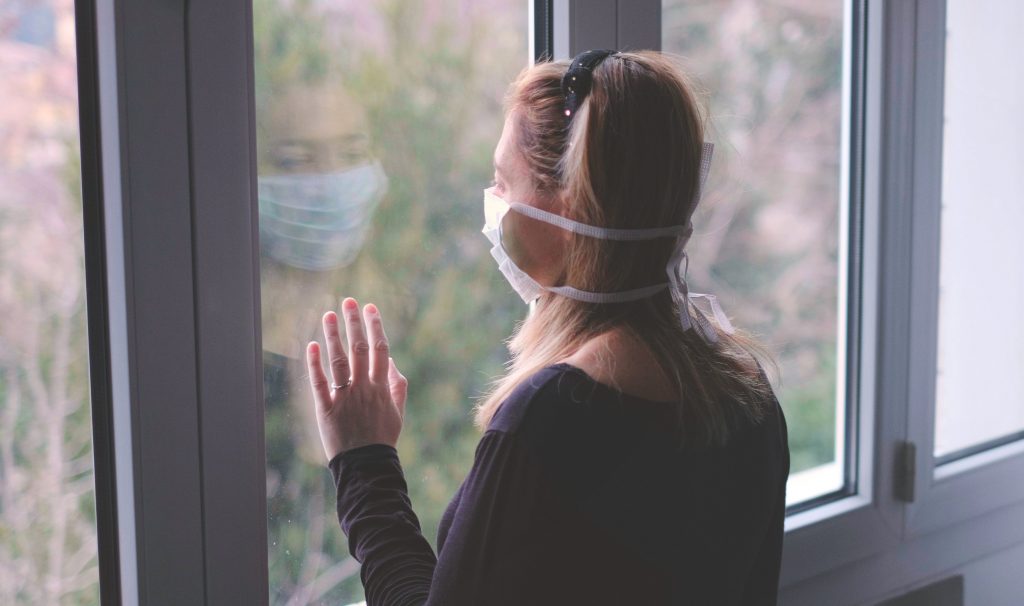
- ARAB NEWS
- 12 Jul 2025

Stay home, stay safe. This is what everyone is saying these days to urge caution against the coronavirus disease (COVID-19) pandemic. But what about those who don’t have a home, or for whom home is not a safe place to be? While we are all hunkering down in our homes, avoiding gatherings in order to adhere to the social distancing rules and relying on our electronic gadgets and the internet to stay connected with the outside world, other people’s lives have been placed at even greater risk than they were previously. For those who are most vulnerable or marginalized, staying indoors, keeping a distance from others, or regularly washing their hands with water and soap, not to mention accessing and receiving help, are a luxury and a problem.
Last week, the UN sounded the alarm on an increase in domestic violence, including physical and sexual abuse, reported by several countries around the world during the coronavirus lockdown. Some domestic violence helplines and shelters have reported a rise in calls for help of up to 30 percent. With countries’ resources, especially in health care, fully mobilized and stretched to the limit, there are few resources left to address any other issues. In some cases, even civil society organizations and social workers are finding themselves helpless in extending a helping hand because they too are restricted in movement.
The abused women and children who might have had a chance to seek help before are now being forced to endure in silence and be within arm’s reach of their abusers more often. Unless it is an emergency, victims cannot expect an intervention, especially because in most countries the number and capacity of the shelters are limited. If domestic violence, against women, children, household workers or even men, was under-reported before, it might now be far less noticeable. But that does not necessarily mean it is occurring less.
Elongated confinement periods in perhaps cramped spaces — as homes have also become schools and places of work — financial worries and emotional distress are all factors likely to increase tensions and lead to more violence. Not to mention the constant bombardment of news and rumors about the spread of the virus, putting more pressure and demands on people to comply with certain regulations and hygienic procedures. If there are other vulnerable members of a household who need care and attention — the elderly, handicapped or people with special needs — that is another stress point for broken or poor families, and they too might be subject to abuse or neglect.
Worrying about how to protect oneself from violence and getting the help needed is stressful enough in normal circumstances, but now it is compounded. Digital platforms and applications are useful to an extent; if the victim has access to them in the first place or is old enough to know how to use them. But in abuse cases a human response is essential.
For now, the burden is on helplines, psychological support and online counseling using technology-based solutions and trying to reach those who have no access to phones or the internet. The police and justice services must also be available to ensure incidents of violence are addressed. And it is important that neighbors and community leaders, especially religious leaders, local authorities and civil society, be vigilant in reporting, counseling and protecting the vulnerable. The private sector can also assist in providing shelter and financial support.
Worrying about how to protect oneself from violence is stressful enough in normal circumstances, but now it is compounded.
Maha Akeel
Many governments have taken measures to lessen the effects of the lockdown on the economy, especially for the poor and by supporting businesses. These are the visibly affected. Experts are also calling for governments to make policies and take steps to protect the vulnerable and weakest members of society, whether they are visible or not. Raising awareness about the disease and providing support and counseling to these families is important. Service providers need to ensure access and the means of communication, especially to children, as they find themselves almost cut off from outside help. Nongovernmental organizations could try to arrange assistance in coordination with the authorities and while taking the necessary precautions.
UN Secretary-General Antonio Guterres has called on all governments to make the prevention and redress of violence against women a key part of their national response plans for COVID-19. Women have to be involved in all response teams, committees and emergency plans to ensure that all measures and policies — whether financial, medical or security-based — are gender sensitive, especially when considering that women make up 70 percent of all workers in the health and social sectors, according to the World Health Organization.
Maha Akeel is a Saudi writer based in Jeddah. Twitter: @MahaAkeel1